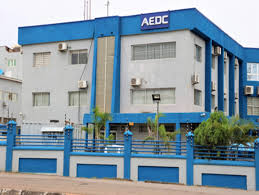Lives Controlled by Crime: Explosive Corruption Allegations Rock South Africa’s Police Leadership

South Africa’s government is facing growing pressure after bombshell allegations emerged last week implicating top political and law enforcement officials in deep-rooted criminal collusion — charges that strike at the heart of the country’s battle against violence and impunity.
In a stunning July 6 press briefing, KwaZulu-Natal Provincial Police Commissioner Nhlanhla Mkhwanazi accused Police Minister Senzo Mchunu of protecting a powerful crime syndicate involving politicians, senior police officers, correctional services staff, prosecutors, judges, and business elites.
Mkhwanazi alleged that the minister personally disbanded a special task force probing political assassinations in KZN — one of South Africa’s deadliest provinces — to shield his criminal associates.
The revelations have sent shockwaves through the country and reignited painful memories for South Africans who have long sought justice in vain, such as Patricia Blows, whose son Angelo was killed in a 2016 shooting in Johannesburg.
“I immediately thought of our battle for justice. I just couldn’t find an open door. It still hurts like hell,” said Blows, a community activist from Blackheath on the gang-plagued Cape Flats. Her son’s murder investigation has remained stalled for nine years despite her submitting crucial evidence, including witness statements, to police.
Blows had pinned hopes on Mchunu’s leadership, but Mkhwanazi’s allegations left her shaken.
“I had fresh hope in Mchunu. Now this? Then doubt drifted in, and I had an overwhelming fear for [Mkhwanazi’s] safety,” she told Al Jazeera.
The allegations have sparked outrage among citizens and civil society, already frustrated by rising crime rates, widespread corruption, and the persistent influence of violent gangs — particularly in urban areas like Cape Town and Durban.
One month before Mkhwanazi’s press conference, a police station in the Cape Flats was attacked, allegedly in retaliation for the arrest of a local drug lord — a stark example of how emboldened criminal elements have become.
The government has yet to respond substantively to Mkhwanazi’s claims. Calls are mounting for an independent inquiry, with opposition parties and rights groups demanding the immediate suspension of implicated officials and full transparency.
If verified, the accusations could severely damage the credibility of South Africa’s law enforcement institutions and cast a long shadow over President Cyril Ramaphosa’s reform agenda — one already beset by corruption scandals and wavering public trust.
As the nation waits, many, like Blows, continue to live with loss, pain, and a justice system they fear may be compromised at the highest levels.
“This isn’t just about one murder,” she said. “It’s about how deeply crime controls our lives now.”




